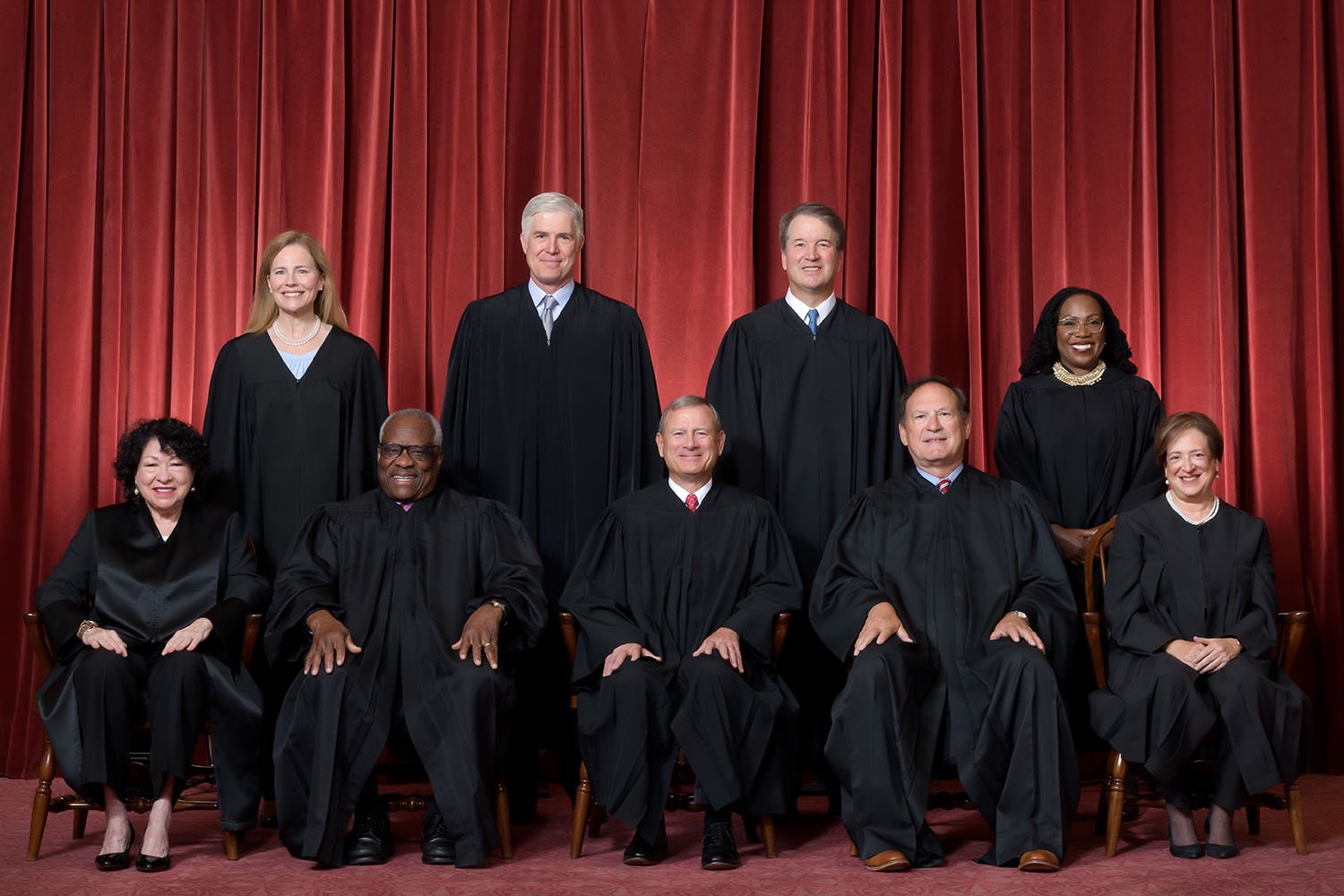WASHINGTON (CN) — The justices of the U.S. Supreme Court issued parting grievances on Tuesday before entering its summer recess, sharing a slew of opinions on future issues they’d like to tackle.
Justices Clarence Thomas and Neil Gorsuch returned to an old foe, Section 230 of the Communications Decency Act, which gives online services limited immunity on third-party content it hosts. The law is almost universally disliked but neither lawmakers nor the high court has been able to thwart the law's protection for social media giants.
The two conservative justices faulted their colleagues for skipping over another opportunity to force platforms to face more consequences for content hosted on their sites.
In a dissent, Thomas said, “The court chooses not to address whether social-media platforms — some of the largest and most powerful companies in the world — can be held responsible for their own misconduct.”
The George H.W. Bush appointee’s opinion followed the court’s refusal to hear an appeal from a man who was groomed by his science teacher when he was 15 years old. The teacher used Snapchat, a platform where users can send self-deleting photos, to seduce the teen, who goes by John Doe in the application.
Doe claimed Snapchat’s negligent design encouraged minors to lie about their age, setting them up to be preyed on by adults. His lawsuit against the platform, however, didn’t go far, since the lower courts concluded that Section 230 protected Snapchat.
Thomas thought Doe’s appeal gave the court a new opportunity to curb the law’s broad immunity provisions after a case last year fell apart before the issue reached the court. While Thomas was sure other cases would come along, he said delaying this review was dangerous.
“In the platforms’ world, they are fully responsible for their websites when it results in constitutional protections, but the moment that responsibility could lead to liability, they can disclaim any obligations and enjoy greater protections from suit than nearly any other industry,” Thomas wrote.
The Occupational Safety and Health Administration also faced Thomas’ scorn. In another dissent, Thomas questioned the agency’s constitutionality, claiming that Congress gave OSHA too much authority over workplace standards.
“The Occupational Safety and Health Act may be the broadest delegation of power to an administrative agency found in the United States Code,” Thomas wrote. “If this far-reaching grant of authority does not impermissibly confer legislative power on an agency, it is hard to imagine what would.”
Gorsuch indicated he also wanted to review the agency’s authority but did not sign on to Thomas’ dissent.
The liberal wing of the bench came together to criticize an appeals court’s application of the landmark ruling, Batson v. Kentucky. In the 1986 ruling, the high court set guidelines to prevent prosecutors from dismissing jurors solely because of their race.
Justice Ketanji Brown Jackson said the Supreme Court should have stepped into a death penalty appeal to fix “a neglectful response to the apparent trend of disturbingly lax Batson enforcement on the part of Georgia’s high court.”
Joined by Justices Elena Kagan and Sonia Sotomayor, the Joe Biden appointee said the 11th Circuit’s unfortunate ruling should have been reversed to address an erroneous application of the court’s precedent.
In another dissent led by Sotomayor, the trio objected to an Arizona Supreme Court decision that violated the justices’ precedents barring mandatory life-without-parole sentences for juveniles.
Sotomayor called for legislative reform to better allow courts to address convictions based on repudiated scientific evidence. The Barack Obama appointee agreed that the court hadn’t received an appropriate appeal but said lawmakers could do more on this front.
Reforms in Texas and California, Sotomayor said, gave courts explicit authority to consider changes in forensic science.
“As a result, innocent people can attain freedom sooner,” Sotomayor.
Sotomayor also forecasted that the court’s intervention might be necessary to counter “egregious prosecutorial misconduct without a remedy.” The comment stemmed from a Kentucky prosecutor’s destruction of a witness’ confession of false testimony that led to a murder charge.
When the existence of the letters came to light, the lead prosecutor urged the witness to destroy the evidence of her lies instead of complying with a court order to turn them over to the defense team.
The prosecutor faced no charges for his behavior because of his immunity protections. Sotomayor said the stunning misconduct in the case called for consideration of these protections.
“If this is what absolute prosecutorial immunity protects, the court may need to step in to ensure that the doctrine does not exceed its ‘'quite sparing' bounds,” Sotomayor wrote.
Subscribe to Closing Arguments
Sign up for new weekly newsletter Closing Arguments to get the latest about ongoing trials, major litigation and hot cases and rulings in courthouses around the U.S. and the world.









